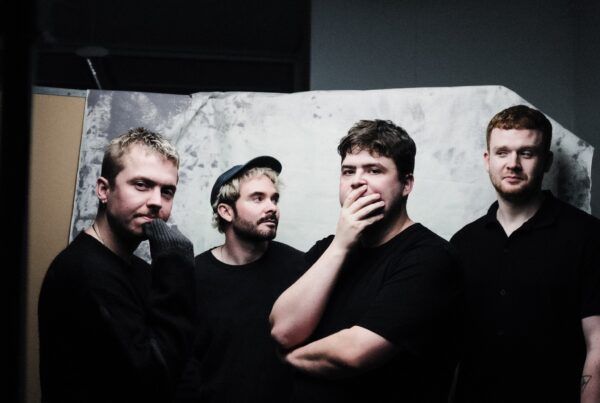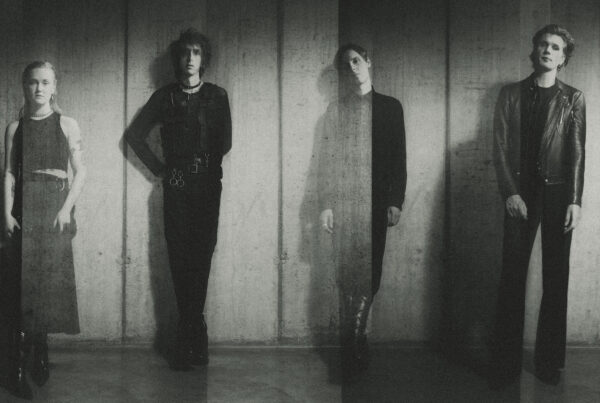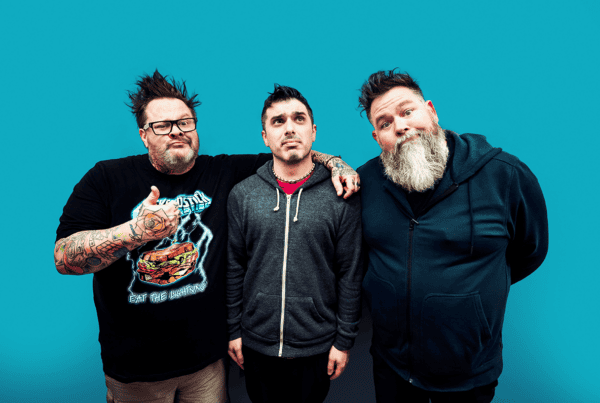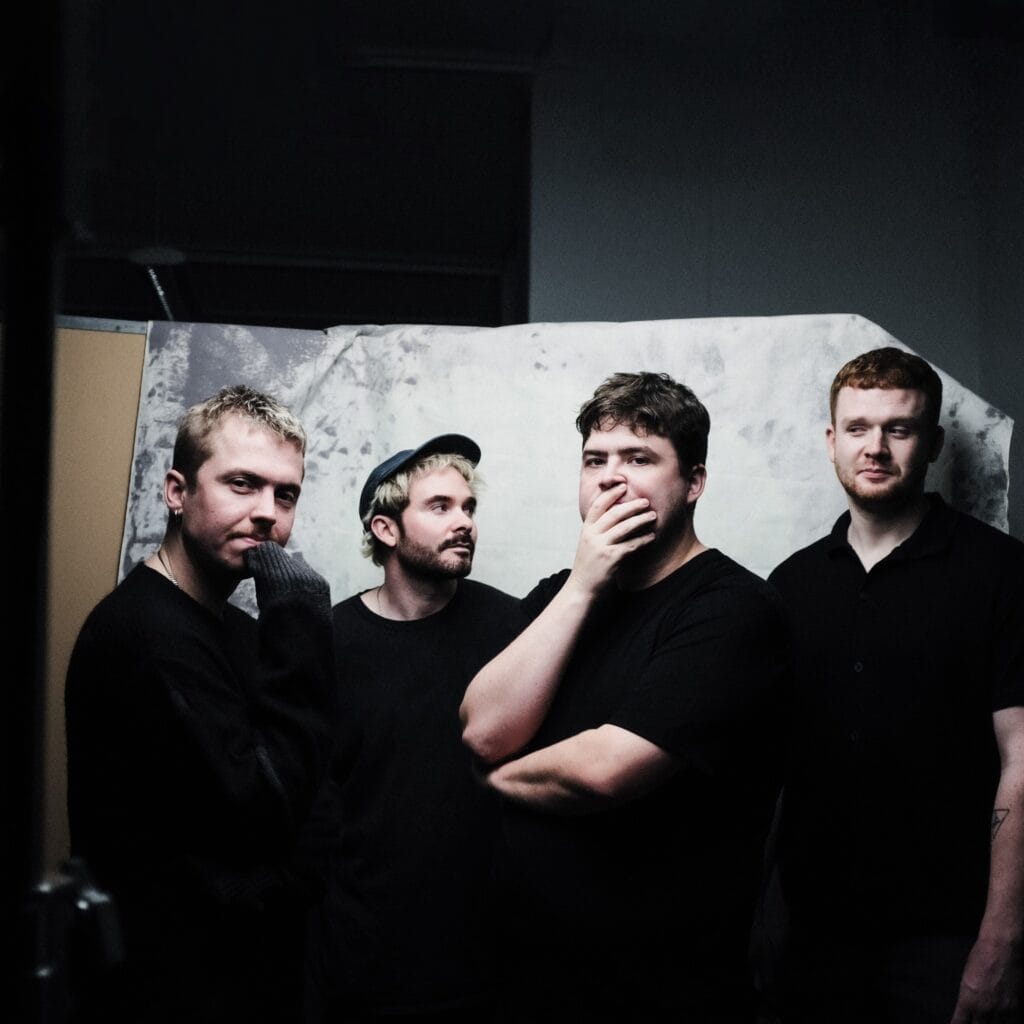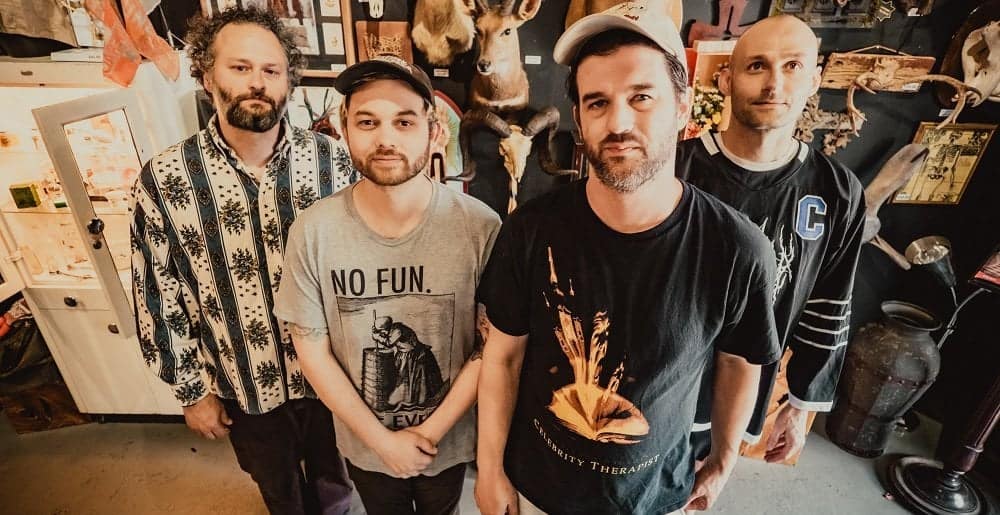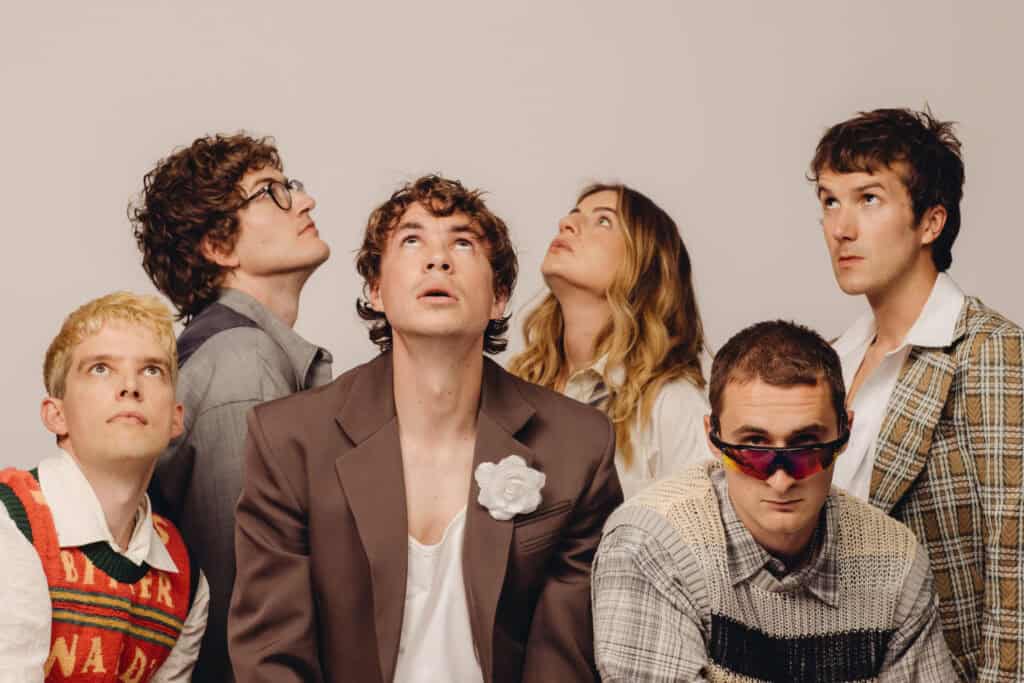“Dilly-dally: verb; informal; to waste time through aimless wandering or indecision.” This definition is ironically the furthest thing from the vitriolic Toronto punk band of the same name. Frontwoman Katie Monks was so certain of Dilly Dally that in 2009 she and the band had their names tattooed on their arms before releasing a single body of music. Crawling straight from the underground, Monks’ coarsely-textured screams over instrumentals that groan and snarl like a rusty switchblade have cemented their reputation as one of the best punk bands of the moment.
The release of their latest album ‘Heaven’ was the rebirth Dilly Dally were craving. Following the meteoric success of their debut album ‘Sore’, the aftermath was “a period of confusion and sadness – our friendships were tattered.” Monks reflects after performing at Headrow House in Leeds. “‘Heaven’ was very much a record we wrote for ourselves. I think we’d all grown so much spiritually in life, and the only way we could have made it was to shut out the whole world and make something special and healing for us.”
It would be easy to file Dilly Dally alongside the likes of Hole and Pixies, but Katie Monks is quick to point out that there was an effort to keep ‘Heaven’ away from contaminating influences. “I feel like for this record, especially, we almost tried to shut out the world and look inside ourselves instead.” She begins. “We tried to find what makes Dilly Dally, Dilly Dally. We just wanted to try and create our own thing without being confined to guitar music. Actually, a lot of the band listen to different genres so it’s easier to disguise what our influences might be.”
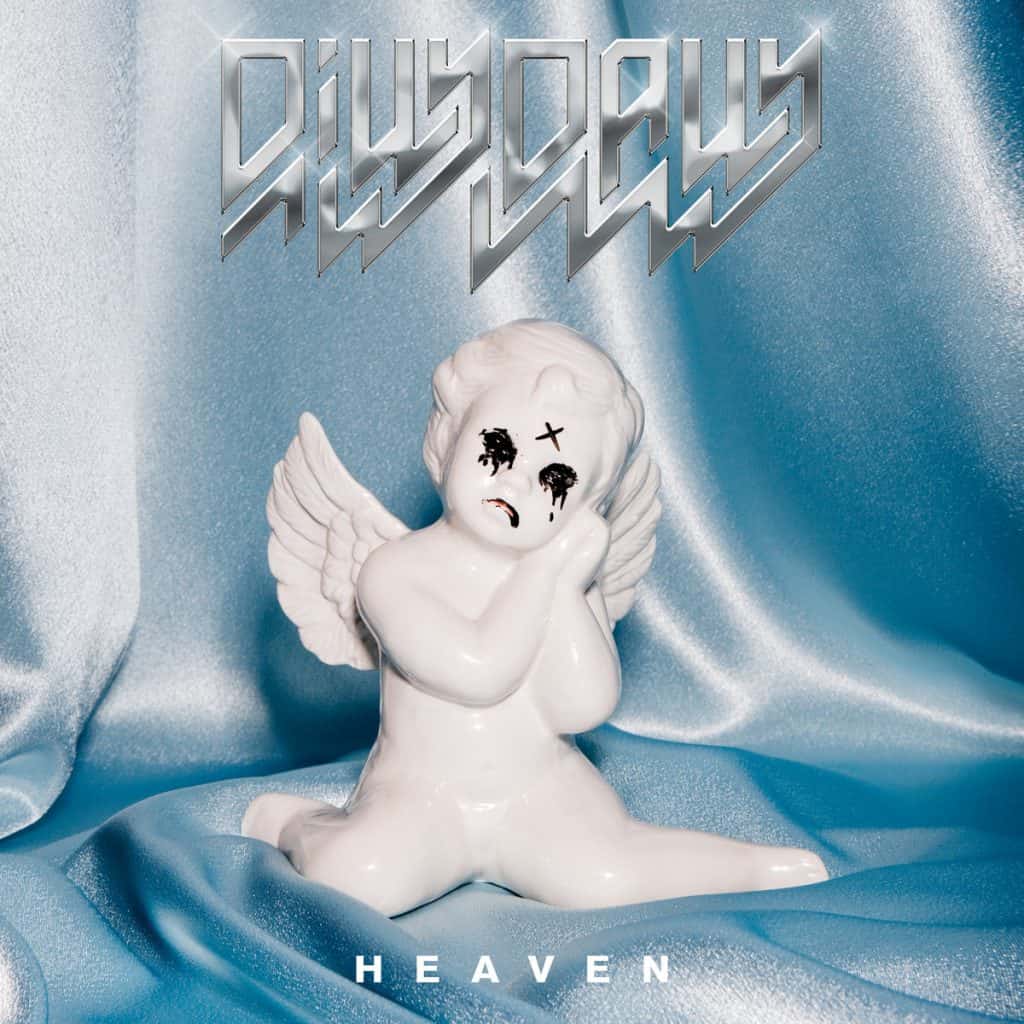
The lyrics in ‘Heaven’ lay down naked truths, at times pleading, at others yearning – more often than not, they are a cry for help. “I guess, secretly, I tried to put it together lyrically in a way that would reach out to people who struggle with depression. There are a lot of messages and hopeful thoughts and feelings to try and give people some positive tools with getting through depression. The music also, at times, illuminates the sadness that people might be feeling who we’re trying to reach out to.”
Many of the tracks on the album contend with our vices: ‘Sober Motel’ washes its hands of romanticising alcohol after bass player Jimmy Tony struggled with addiction. “Alcohol is a huge part of the music industry – I mean, you get paid in it when you’re starting out.” She laughs. Touring, and its toxicity, had marked the undoing of a band that began as tight-knit as Dilly Dally. “The thing with being on tour is if you have any skeletons in the closet, they will reveal themselves to everyone you’re around. Everybody is faced with their biggest insecurities and weaknesses. You have to look at yourself quite harshly in the mirror, sometimes, because the people who are constantly around you suddenly know you better than you know yourself.”
“A lot of artists I know wear their hearts on their sleeves and allow themselves to be vulnerable with each other. It’s very hard to escape the mental health conversation when you’re in a band. I think, for Dilly Dally, that’s the most beautiful thing about this record: not only have we worked on our mental health in practical ways and focused on taking care of ourselves better while we’re on tour – like not sleeping on floors anymore – but the music itself is infused with healing qualities.”
The music industry, historically, has always been an unhealthy one – both physically and mentally. Dilly Dally are testament to this. However, does the frontwoman see signs of improvement in the age of open discussion and emphasis on self-care. “It’s hard to say.” She sighs, pausing for a moment. “For me, more than anything, it’s that there is a huge class divide in the music industry right now. The millions of fans or artists who are struggling to make ends meet can’t afford to be junkies anymore. You have to work so hard and do all these extra-curricular things; we only hired a manager seven months ago, before that we were hiring ourselves. All the things pile on top of each other, like managing your own tours and time. You just can’t afford to be the rock’n’roll stereotype anymore – unless we get our big break, then we’ll get really fucked up.” She laughs, before adding, “That was a bad joke.”
Success is measured by the records: that’s something Katie Monks knows unquestionably. “My records are my babies.” She says. Rightly so, they have been her greatest source of joy and struggle. “The whole band is really proud of ‘Heaven’ because we wrote it together in an entirely different way to how we wrote the debut album. It was a lot more of ‘you do your thing, I’ll do my thing’ and we trusted each other. It feels like a Dilly Dally album, it feels so ‘us’, and we’re all really proud of that. A big part of success is if you’re making art you believe in. I have no control over how our music is received, but I go to bed every night knowing that I worked my ass off on something that came from the heart and has a good, positive message.”
Dilly Dally have forced themselves through a dark tunnel, and found light at the end of it. The release of ‘Heaven’ demarcated a new dawn for the band, but they show no signs of slowing down. “We just filmed this live music video with two different songs off the record. We curated this DIY show in this old warehouse in Toronto.” Katie Monks begins excitedly, “It used to be a coffin factory in the 1800s, and all these artists lived and worked there. It’s getting demolished soon, though, so it’s kind of an ode to this beautiful, creative space. I was living there this month, and very naturally was able to curate this show with all the people I know in the music scene. We made this really magical secret show, and we filmed these two songs. We’re putting that out after this tour. I’m really excited to do that and showcase our live performance to people who haven’t yet had the chance to see us in ways that they might not expect. And then write: which is something we’re able to do a lot faster now. We do have a manger which is really helpful. I’m very much hoping for the third Dilly Dally album to come out much sooner than the second one did. We’re also going to be doing a lot more touring – this time we’re aiming for the States.”
Dilly Dally, after all, had to die a little to reach ‘Heaven’.

